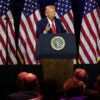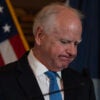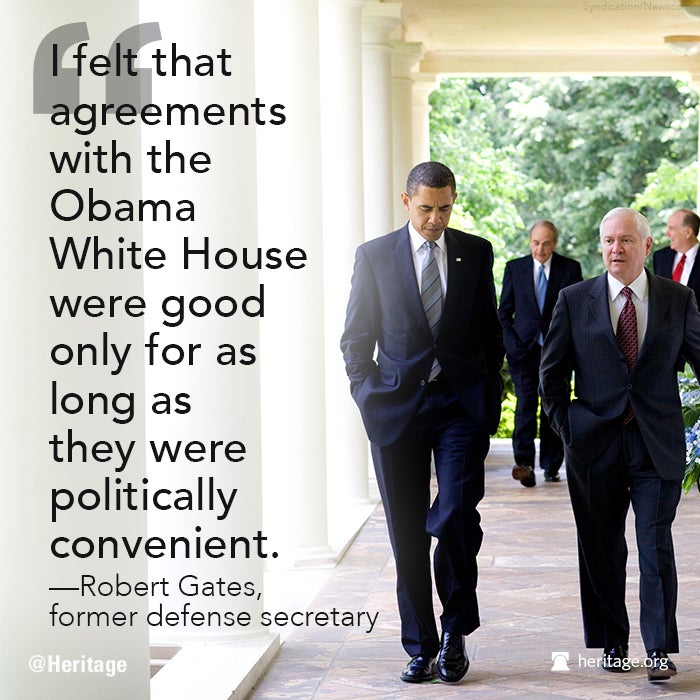President Obama’s former defense secretary takes aim at the commander in chief with a sharp critique of Obama’s leadership and commitment to the war in Afghanistan, according to excerpts of “Duty,” a memoir written by Robert Gates.
Gates’ comments were published in The Washington Post and other media outlets before the book’s release next week. They have already rocked Washington, prompting a response from the White House, and could have lasting implications for Vice President Joe Biden and former Secretary of State Hillary Clinton if they choose to run for the presidency in 2016.
In the book, Gates criticizes Obama for letting politics guide his view of the war in Iraq and his wavering stance on a campaign in Afghanistan. Despite promising as a candidate to deploy more military resources in Afghanistan, Obama “doesn’t believe in his own strategy, and doesn’t consider the war to be his,” writes Gates. “For him, it’s all about getting out.”
Veteran journalist Bob Woodward of The Washington Post called it “one of the more serious charges that a defense secretary could make against a commander in chief.” Woodward added: “It is rare for a former Cabinet member, let alone a defense secretary occupying a central position in the chain of command, to publish such an antagonistic portrait of a sitting president.”
The National Security Council responded to Gates’ criticism with a statement from spokeswoman Caitlin Hayden. “As has always been the case,” she told the Post, “the President welcomes differences of view among his national security team, which broaden his options and enhance our policies.”
Beyond the criticism of Obama’s leadership of the war in Afghanistan, Gates also has harsh words about Biden’s “poisoning the well” against military leadership. He also offers this insight into the 2007 campaign waged between Obama and Clinton:
Hillary told the president that her opposition to the [2007] surge in Iraq had been political because she was facing him in the Iowa primary. … The president conceded vaguely that opposition to the Iraq surge had been political. To hear the two of them making these admissions, and in front of me, was as surprising as it was dismaying.
Asked to assess Gates’ critique, Heritage expert James Carafano said, “You don’t need a book from the former secretary to know that many of the decisions Obama made during Gates’ watch were a disaster.”
Carafano, Heritage’s vice president of foreign and defense policy studies and E. W. Richardson Fellow, called the withdrawal from Iraq a “colossal failure” with violence higher today than when Obama took office. He also noted that resurgence of the Taliban and al Qaeda following Obama’s mishandling of the surge in Afghanistan and the drawdown of forces planned this year.
Gates bears responsibility for these failures as well, Carafano said. He cited the drop in military readiness on Gates’ watch, threatening national security.
“It’s hard not to see the former secretary as an enabler for some of the President’s worse decisions,” Carafano said. “We’ll have to read his account and measure it against what else we know to really trace the roots of military decline under Obama and how the nation wound up less safe than when he took office.”































